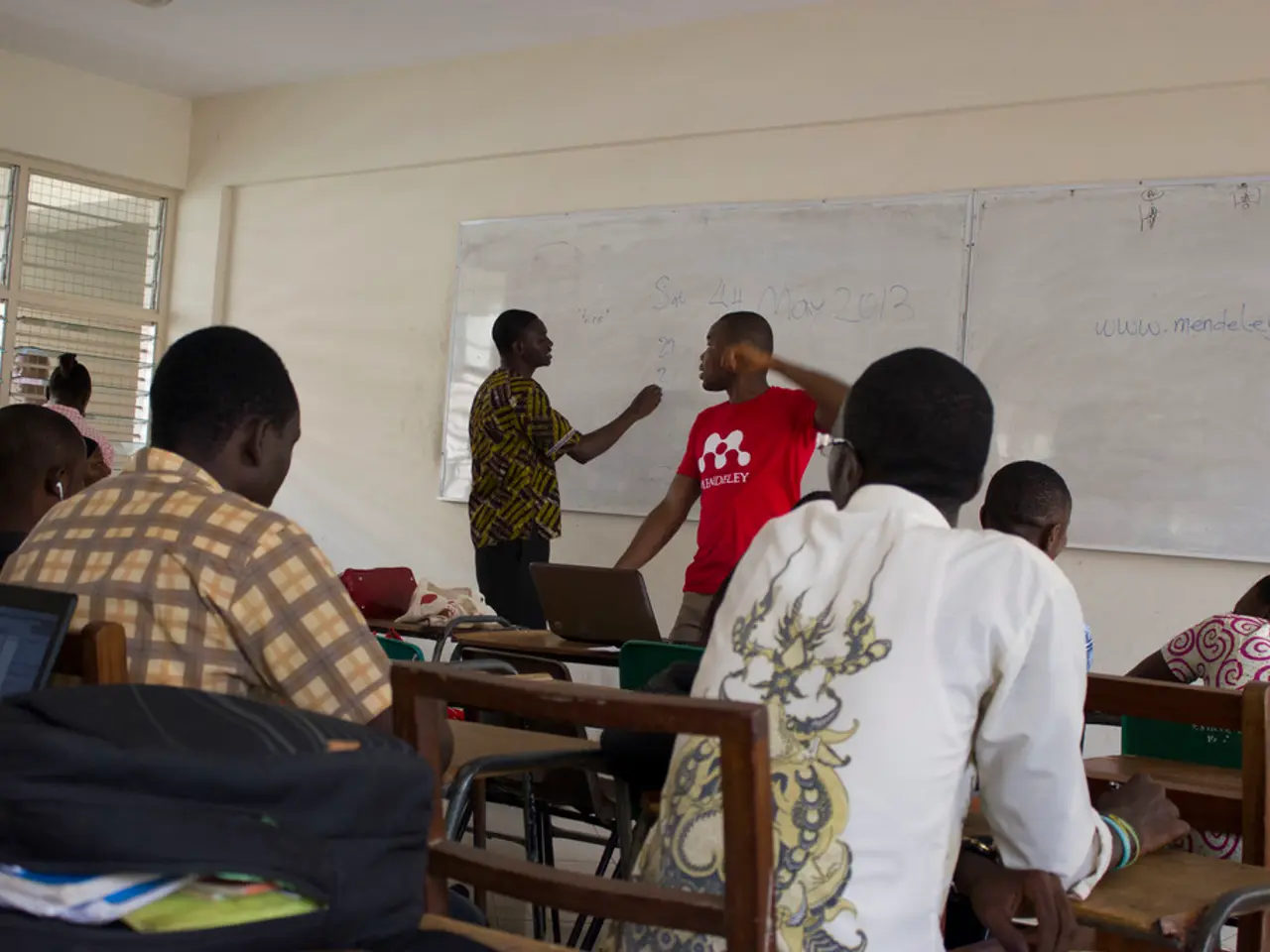Advanced Strategies for Continuous Evaluation of Student Understanding in Education
Formative assessment techniques are transforming the way educators approach teaching and learning, providing a dynamic and adaptive learning environment that caters to students' needs. These strategies, which include quizzes, peer assessments, and classroom discussions, allow educators to identify areas where students may be struggling and offer timely interventions.
Some effective formative assessment techniques include exit tickets, peer assessments, think-pair-share, case studies, and concept mapping. Low-stakes quizzes, mini whiteboards, AI-powered adaptive assessments, student self-assessment, and collaborative activities are innovative methods that prioritize engagement, personalization, and collaboration.
Low-stakes quizzes, spaced over time and interleaving topics, support retrieval practice, keep pressure low, and allow for personalized pacing and feedback. Mini whiteboards encourage whole-class participation, fostering collaboration and immediate feedback cycles. AI-powered adaptive assessments personalize question difficulty and formats in real-time, enhancing engagement through interactive, game-like environments while providing tailored feedback for each learner.
Student self-assessment using rubrics or checklists promotes metacognition and ownership of learning, allowing students to reflect on their progress and areas to improve. Collaborative activities, such as student-created visualizations, doodle maps, or group discussions, allow learners to co-construct knowledge and assess each other's understanding in a low-stakes manner. Exit tickets and one-minute papers provide quick, reflective, and individualized feedback opportunities that teachers can use to adjust instruction dynamically.
Incorporating technology into formative assessments can be achieved through digital tools like polling software or interactive platforms. Platforms like Google Forms, Kahoot, Moodle, and Canvas facilitate the creation of interactive quizzes and surveys, providing immediate data for educators to adjust instructional strategies. This real-time feedback helps educators identify learning gaps and understand student progress more effectively.
Effective formative assessment techniques are characterized by timely feedback, adaptability, collaboration, clarity in learning objectives, and the integration of various assessment methods. They foster an interactive classroom atmosphere that prioritizes learning and development. Incorporating technology into formative assessment techniques can facilitate personalized learning experiences, tailoring assessments to meet each student's unique needs.
However, the lack of adequate training or support for educators in utilizing formative assessment techniques effectively can hinder their proper integration into teaching practices. Differentiating assessment techniques to meet diverse learning needs can be challenging due to varying levels of student engagement and readiness. Aligning formative assessments with curricular goals is crucial for their successful use in the classroom. Aligning formative assessments with specific learning goals ensures that they are purposeful and provide actionable feedback.
Future trends in formative assessment techniques include real-time feedback mechanisms, AI-driven platforms, gamification, and collaborative assessment strategies. Formative assessments promote an adaptive learning environment, benefiting both teachers and students by focusing on the learning process. Case studies demonstrate the practical application of formative assessment techniques within diverse educational settings. Effective integration of formative assessment techniques into lesson plans enhances student engagement and promotes meaningful learning.
In conclusion, formative assessment techniques are essential tools for modern educators, providing a dynamic and adaptive learning environment that caters to students' needs. By prioritizing engagement, personalization, and collaboration, these strategies can revolutionize the way we teach and learn.
Professional development programs focusing on instructional strategies can equip educators with the skills necessary to effectively implement e-learning and formative assessment techniques in education-and-self-development settings. These strategies, such as low-stakes quizzes, student self-assessment, and collaborative activities, can be enhanced through the use of digital tools for personalized learning experiences.
Effective integration of modern formative assessment techniques, like real-time feedback mechanisms and AI-driven platforms, requires ongoing professional development to ensure educators are well-versed in these technology-integrated learning strategies. This knowledge will allow them to foster an interactive classroom atmosphere that prioritizes learning and development, beneficial for both students and teachers in the e-learning environment.




